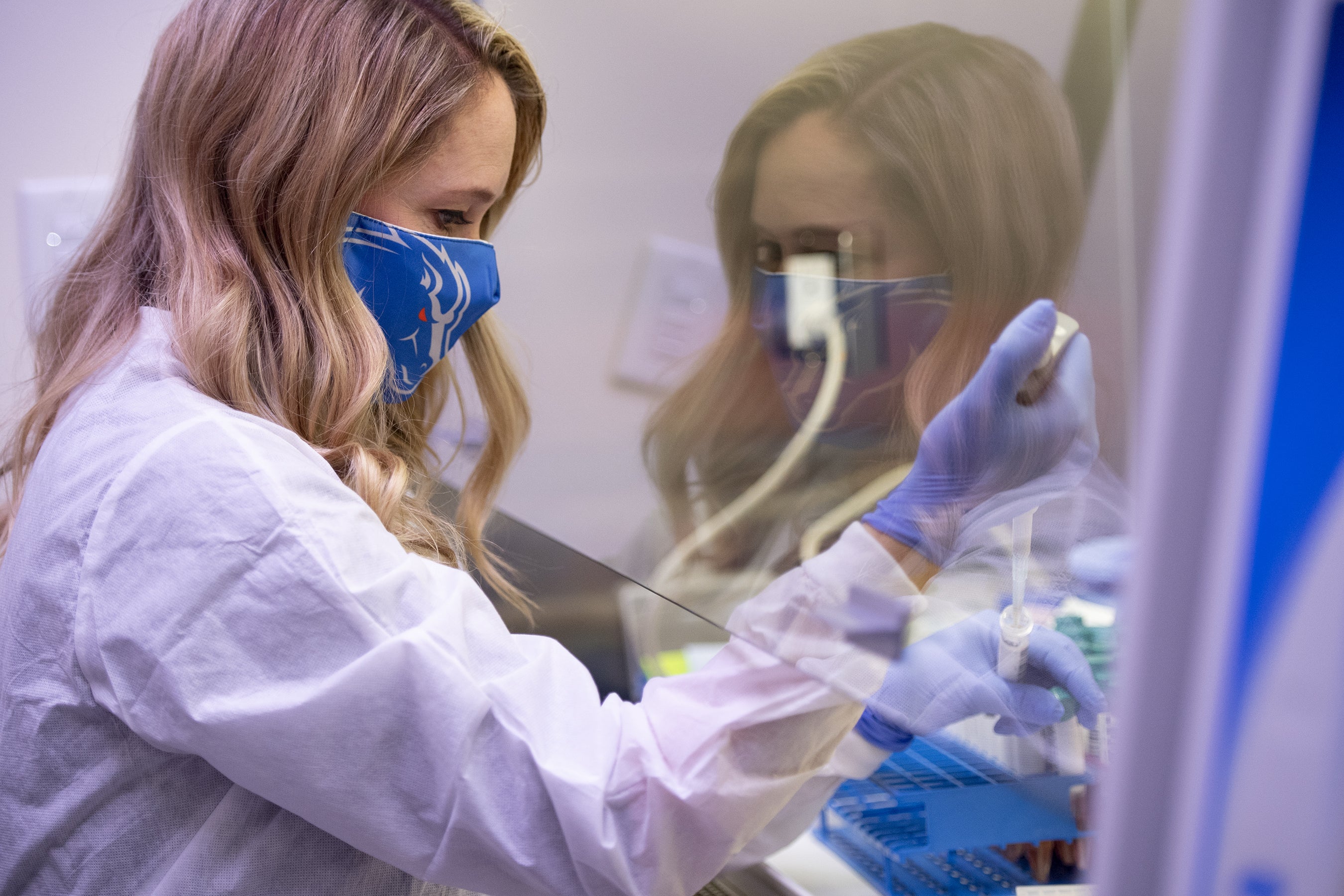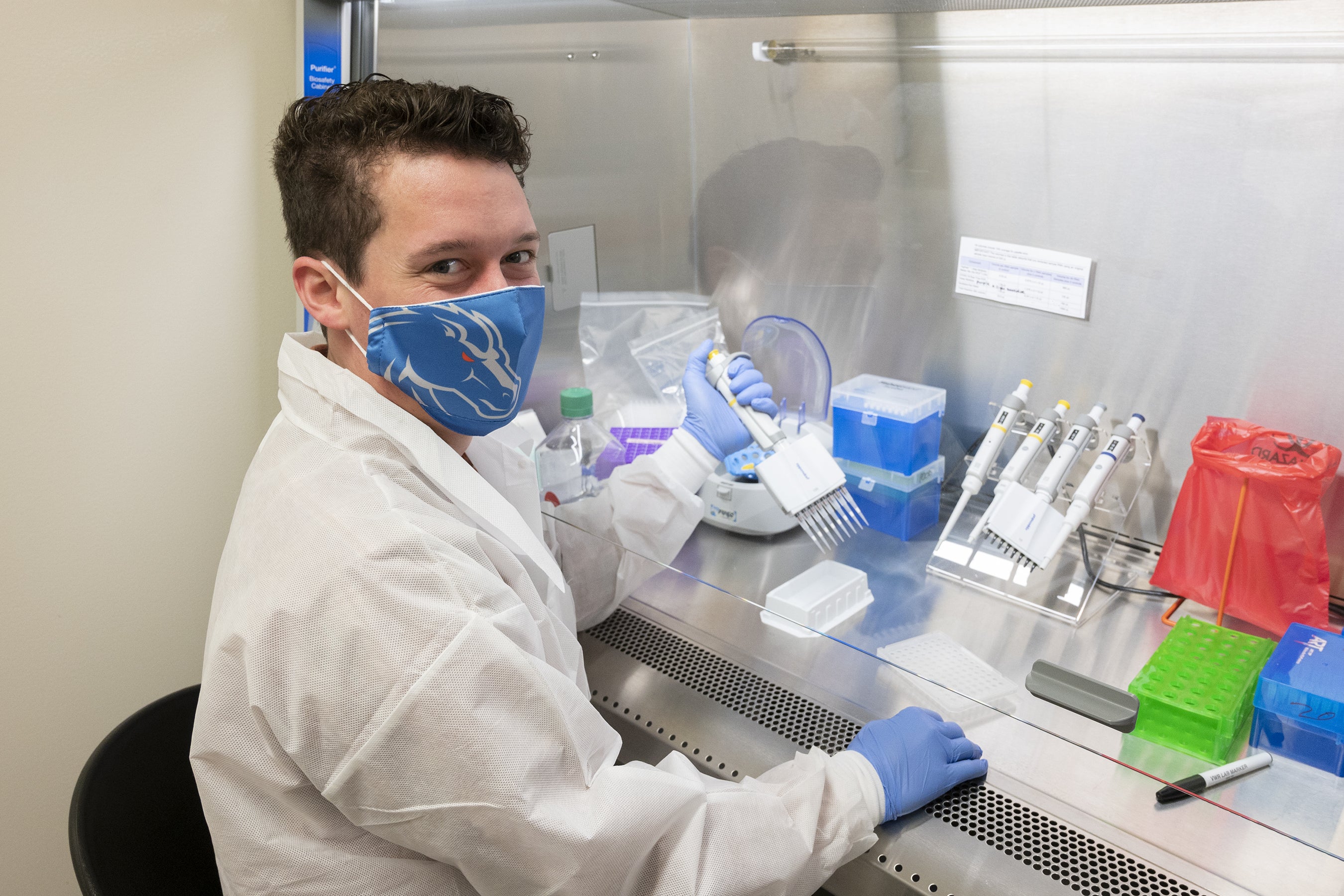Boise State has remained open for in-person classes throughout the fall semester. Part of this success is due to a new and growing clinical lab on campus that allows the university to test students, faculty and staff, and student-athletes, and more recently, first responders, teachers and other community members — and typically provide same- or next-day results.
Boise State’s lab opened in mid-October and primarily processes COVID tests of asymptomatic individuals. The lab conducts diagnostic analyses of RT-PCR tests, showing if someone has an active coronavirus infection and needs to isolate from others. The lab is run by Stephanie Hudon (PhD, Biomolecular Sciences, ‘20) and staffed by students, who process up to 1000 tests a day.
Not only is the Clinical Laboratory Improvement Amendments (CLIA)-certified lab helping to keep campus open, but it is also adding much needed lab capacity to southwest Idaho. Community organizations or companies may inquire about lab testing by emailing publichealth@boisestate.edu.


Boise State built an institutional reintegration plan before the start of fall semester that requires facial coverings and includes increased sanitizing of classroom and shared spaces, reduced capacity in classrooms and other spaces on campus, education campaigns on physical distancing and effective prevention measures, contact tracing, and regular testing of campus residents. The plan also included setting aside dedicated isolation spaces for residential students and faculty who test positive. The university has not identified a single case of COVID that was contracted in a classroom, and infection rates— as measured by on-campus testing— continue to be lower than those in the surrounding community.
“The university employed a multipronged strategy to mitigate the risk of and respond to COVID infections,” said Alicia Estey, vice president for Public Health. “Our ability to test is one of the cornerstones of this strategy, along with a robust contact tracing program that helps us identify members of our campus community who have been in close contact with an infected individual and quarantine them to prevent further spread. Contact tracing is most effective when it begins right after a person becomes infected, and having our own lab with fast resulting times has been crucial to helping us begin that process early in the infection cycle.”
The university also hopes to utilize wastewater testing results to identify pockets of infections and target testing to those at highest risk.
“Opening the Boise State COVID Lab was a game changer for our campus COVID-19 response,” said public health officer Maureen Welcker. “Access both to more testing and testing connected with fast results and has greatly improved our ability to identify COVID cases and, in coordination with effective contact tracing, stop further spread of the disease among our Boise State community.”
